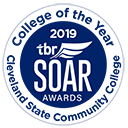Median wages
$18,800
Coordinate activities in residential facilities in secondary and college dormitories, group homes, or similar establishments. Order supplies and determine need for maintenance, repairs, and furnishings. May maintain household records and assign rooms. May assist residents with problem solving or refer them to counseling resources.
- Enforce rules and regulations to ensure the smooth and orderly operation of dormitory programs.

- Provide emergency first aid and summon medical assistance when necessary.

- Mediate interpersonal problems between residents.

- Make regular rounds to ensure that residents and areas are safe and secure.

- Observe students to detect and report unusual behavior.

- Communicate with other staff to resolve problems with individual students.

- Counsel students in the handling of issues such as family, financial, and educational problems.

- Collaborate with counselors to develop counseling programs that address the needs of individual students.

- Develop and coordinate educational programs for residents.

- Develop program plans for individuals or assist in plan development.

- Provide requested information on students' progress and the development of case plans.

- Hold regular meetings with each assigned unit.

- Supervise students' housekeeping work to ensure that it is done properly.

- Administer, coordinate, or recommend disciplinary and corrective actions.

- Confer with medical personnel to better understand the backgrounds and needs of individual residents.

- Answer telephones, and route calls or deliver messages.

- Determine the need for facility maintenance and repair, and notify appropriate personnel.

- Supervise, train, and evaluate residence hall staff, including resident assistants, participants in work-study programs, and other student workers.

- Oversee departmental budget.

- Supervise the activities of housekeeping personnel.

- Compile information such as residents' daily activities and the quantities of supplies used to prepare required reports.

- Chaperone group-sponsored trips and social functions.

- Process contract cancellations for students who are unable to follow residence hall policies and procedures.

- Provide transportation or escort for expeditions, such as shopping trips or visits to doctors or dentists.

- Order supplies for facilities.

- Assign rooms to students.

- Direct and participate in on- and off-campus recreational activities for residents of institutions, boarding schools, fraternities or sororities, children's homes, or similar establishments.

- Accompany and supervise students during meals.

- Sort and distribute mail.

- Inventory, pack, and remove items left behind by former residents.
- Accounting software — Budgeting software

- Analytical or scientific software — Survey software

- Data base user interface and query software — Data entry software


- Electronic mail software — Email software

- Internet browser software — Web browser software

- Office suite software — Microsoft Office

- Spreadsheet software — Microsoft Excel


- Web page creation and editing software — Website development software

- Word processing software — Microsoft Word

![]() Hot Technology — a technology requirement frequently included in employer job postings.
Hot Technology — a technology requirement frequently included in employer job postings.
- Active Listening — Giving full attention to what other people are saying, taking time to understand the points being made, asking questions as appropriate, and not interrupting at inappropriate times.

- Monitoring — Monitoring/Assessing performance of yourself, other individuals, or organizations to make improvements or take corrective action.

- Social Perceptiveness — Being aware of others' reactions and understanding why they react as they do.

- Speaking — Talking to others to convey information effectively.

- Coordination — Adjusting actions in relation to others' actions.

- Critical Thinking — Using logic and reasoning to identify the strengths and weaknesses of alternative solutions, conclusions or approaches to problems.

- Negotiation — Bringing others together and trying to reconcile differences.

- Time Management — Managing one's own time and the time of others.

- Persuasion — Persuading others to change their minds or behavior.

- Service Orientation — Actively looking for ways to help people.

- Judgment and Decision Making — Considering the relative costs and benefits of potential actions to choose the most appropriate one.

- Active Learning — Understanding the implications of new information for both current and future problem-solving and decision-making.

- Complex Problem Solving — Identifying complex problems and reviewing related information to develop and evaluate options and implement solutions.

- Reading Comprehension — Understanding written sentences and paragraphs in work related documents.

- Instructing — Teaching others how to do something.

- Management of Personnel Resources — Motivating, developing, and directing people as they work, identifying the best people for the job.

- Systems Analysis — Determining how a system should work and how changes in conditions, operations, and the environment will affect outcomes.

- Writing — Communicating effectively in writing as appropriate for the needs of the audience.










